North east Scotland consortium joins green freeport bidders
- Published
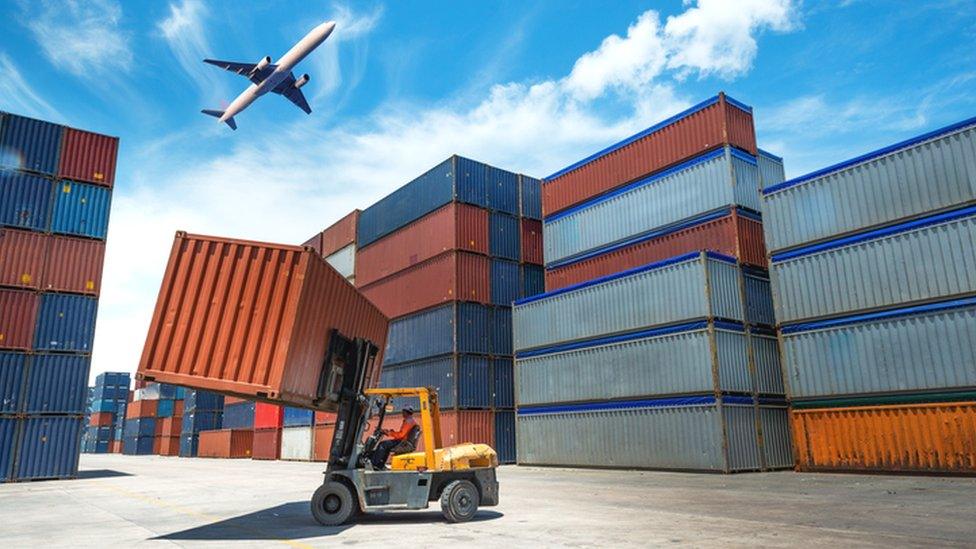
A consortium based in the north east of Scotland has become the latest group to announce plans to bid for green freeport status.
The NESGF alliance said the move could lead to up to 30,000 new high-quality jobs and deliver a major economic boost for the region over the next decade.
The Scottish and UK governments are working together to create two green freeports in Scotland by next year.
The special economic zones will offer tax breaks and lower business tariffs.
The North East Scotland Green Freeport alliance joins a growing list of organisations aiming to bid for freeport status before the deadline of 20 June.
Bidders must set out how they will regenerate their area, create high-quality jobs, and support transition to a net-zero economy.
Earlier this week, a public-private partnership said it was planning to launch a multi-million-pound bid for a green freeport on the River Clyde.
Forth Ports - which owns and operates seven ports on the east coast of Scotland - has also said it would bid to create a Firth of Forth green freeport, external.
However, plans for Cairnryan are set to be dropped after the local council voted to exclude P&O Ferries from its proposals.
Regional customs hub
In throwing their hat into the ring, NESGF partners Aberdeen City and Aberdeenshire councils, Port of Aberdeen, Peterhead Port Authority and Aberdeen International Airport, said freeport status would boost GVA (gross value added) by £7.5bn over the next decade.
They also claimed it would bring large-scale, advanced manufacturing to Aberdeen to help boost Scotland's offshore wind and hydrogen sectors and accelerate "pioneering" carbon capture projects on the Buchan coast.
It would also create a regional customs hub for premium Scottish food and drink exports, such as Scotch whisky and seafood.
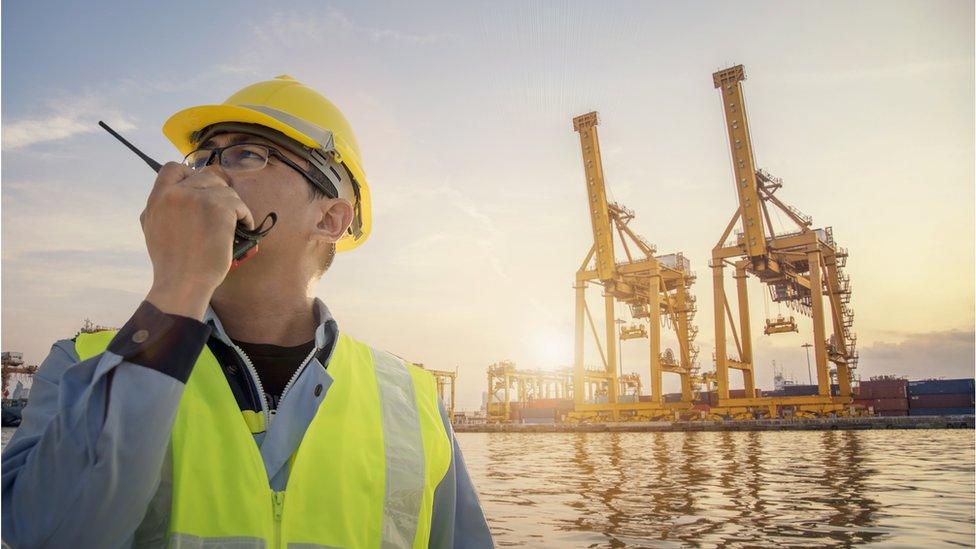
Under the UK government's model, freeports are centred around at least one air, rail or sea port
NESGF is being supported by regional organisations such as the Energy Transition Zone (ETZ), Opportunity North East (ONE) and Aberdeen and Grampian Chamber of Commerce, as well as two universities.
Sir Ian Wood, chairman of ONE and ETZ, said a green freeport would "help cement the bridge between oil and gas and the new energies as part of a managed and just transition".
He added: "It will ensure the north east of Scotland can maintain and build on its high-value employment and innovative jobs and successfully achieve the transformation from the oil and gas capital of Europe to the net-zero capital of Europe."

What are freeports?
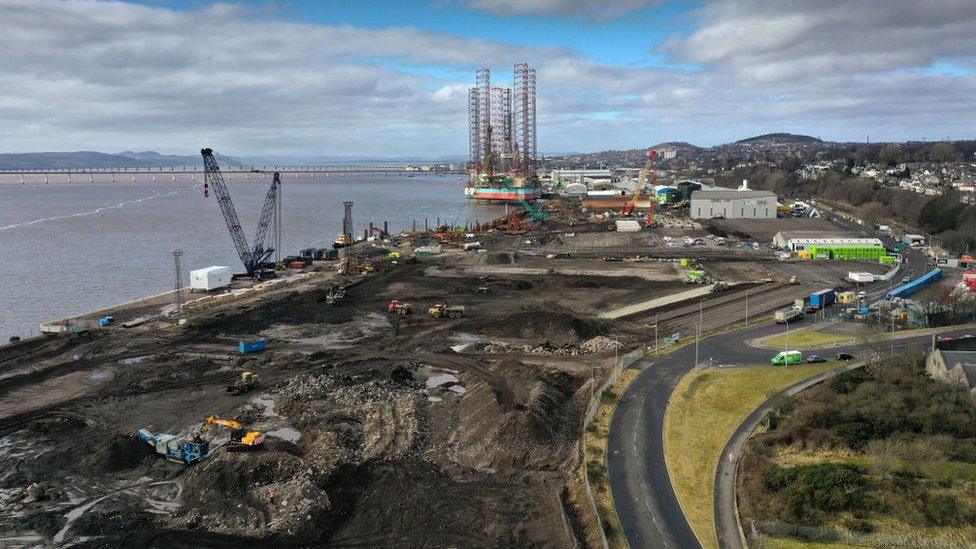
Dundee has previously been suggested as a potential location for a freeport
Also called free trade zones, they are designated areas where the normal tax and tariff rules of the country in which they are based do not apply.
They allow goods to be imported, manufactured and re-exported without being subject to checks, paperwork, or import taxes, known as tariffs.
This means raw materials can be imported, then engineered into whole products for export.
Typically, companies operating in the zone pay lower taxes, such as reduced VAT and lower rates of employment tax.
Critics argue they simply defer the point when import tariffs are paid, which then still need to be paid at some stage.

Meanwhile, the Clyde Green Freeport project is being prepared by a partnership consisting of Glasgow Airport, Clydeport, Mossend International Rail freight Park in North Lanarkshire and the Glasgow City Region councils.
They say a freeport in Glasgow would help maximise the area's transport network and facilities at Glasgow Airport, the freight interchange at Mossend and four deep-water ports on the River Clyde.
If the bid is successful, the consortium hopes to attract major new investment to the region, developing opportunities for global trade, accelerating net-zero objectives and creating tens of thousands of jobs.
Kevin Rush, of the Clyde Green Freeport bid, said Glasgow City Region was "uniquely positioned to create a highly-successful green freeport to put the country at the forefront of global trade and decarbonisation".
Green freeport objectives
Applicants for green freeport status in Scotland must deliver on four main objectives in order to be considered:
promote regeneration and high-quality job creation
promote decarbonisation and a just transition to a net-zero economy
establish hubs for global trade and investment
foster an innovative environment
The UK government has committed funding of £52m to the project and bidders will have to pledge to reach net zero by 2045.
The Scottish government has said that all green freeport applicants would have to stick to their commitments to net-zero targets and fair work.
However, the Scottish Greens have previously criticised the plans as "greenwashing".
The two winning bids are expected to be announced this summer.
Ministers from both the Scottish and UK governments will have a say in the assessment and selection process.
The governments were previously unable to agree plans to establish freeports north of the border, after a number of sites were announced for England.
Scottish ministers later said they would pursue an alternative "green freeport" model, with additional standards around jobs and climate targets.
- Published14 February 2022
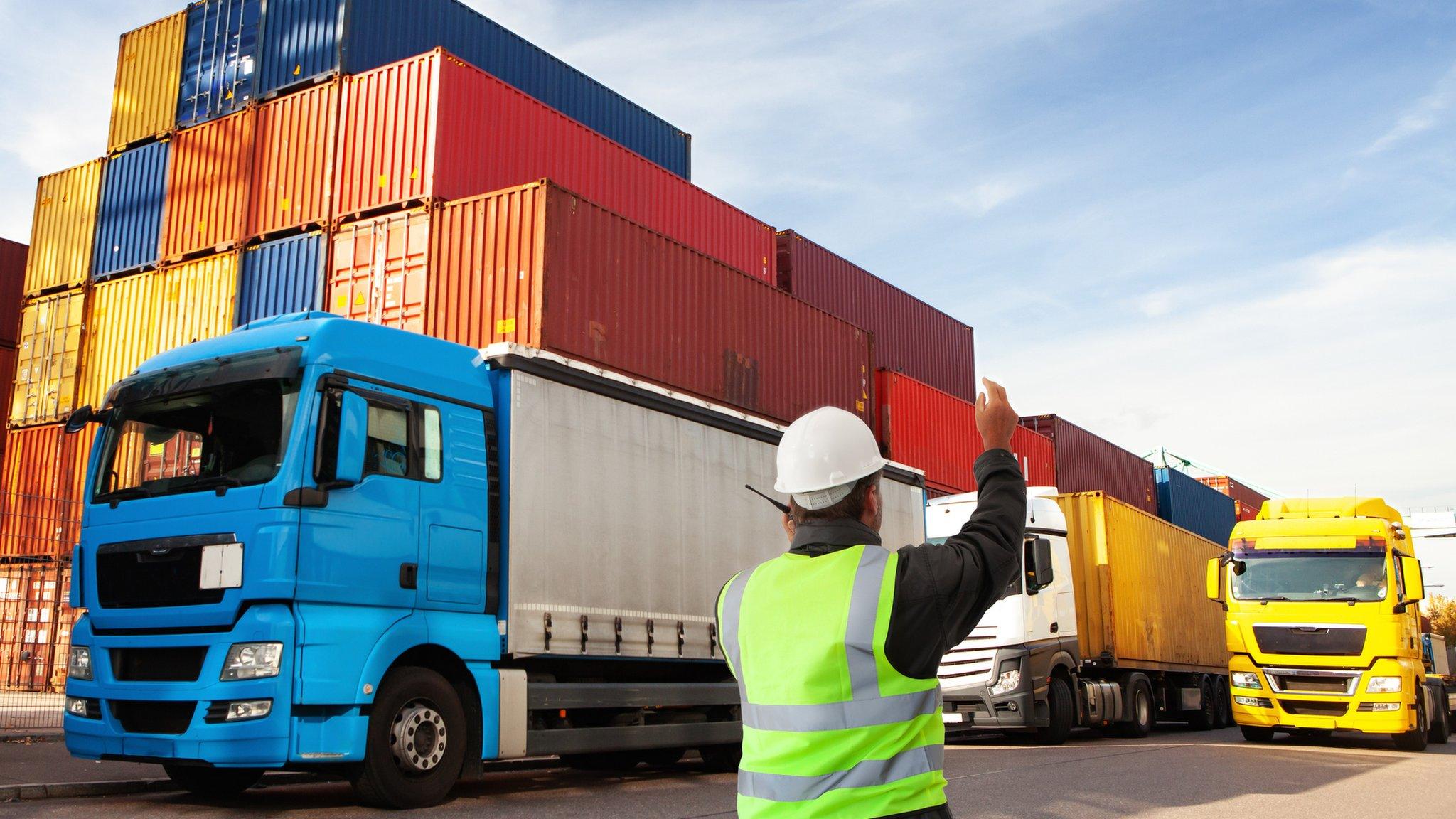
- Published6 June 2022
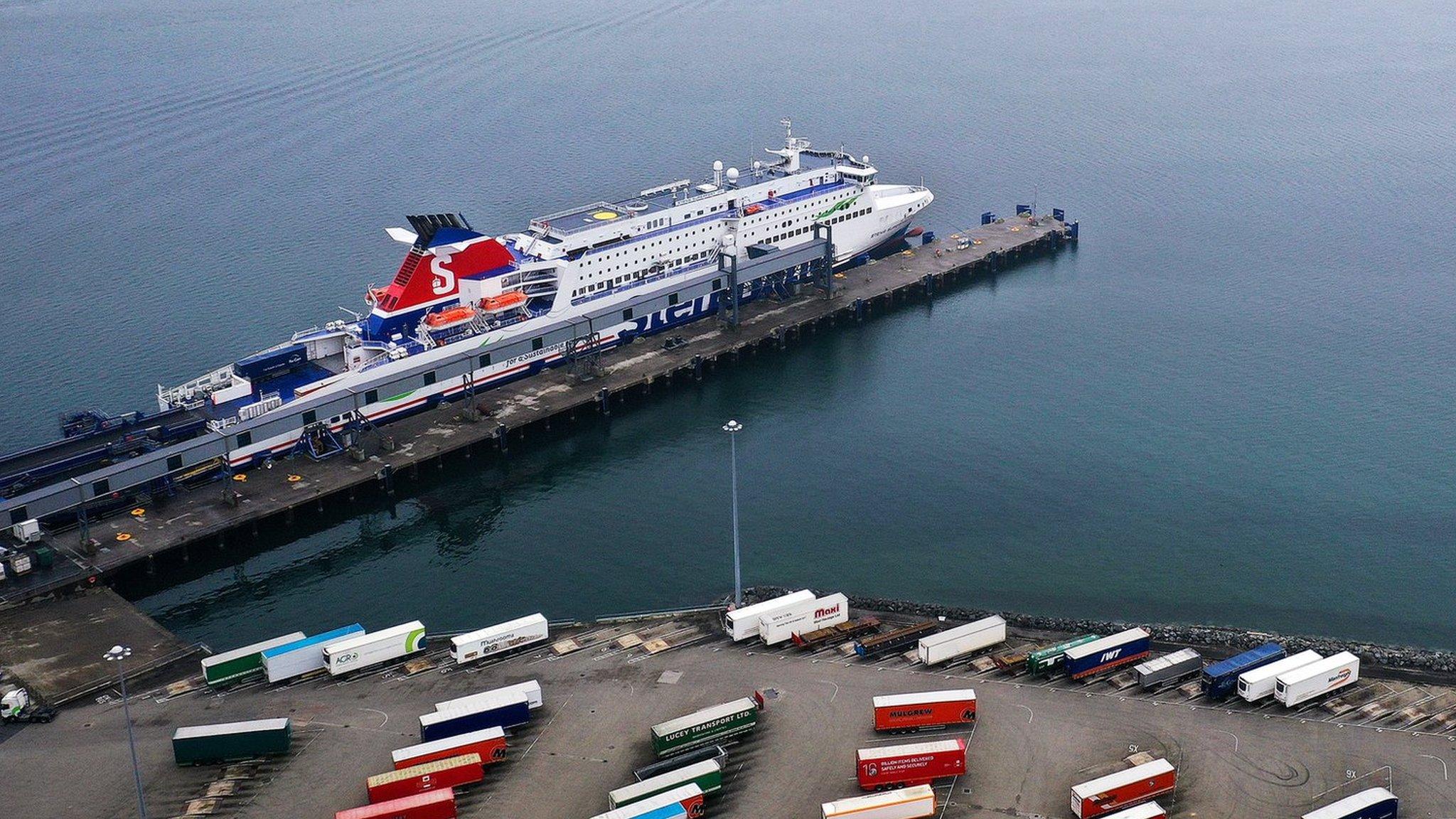
- Published1 October 2021
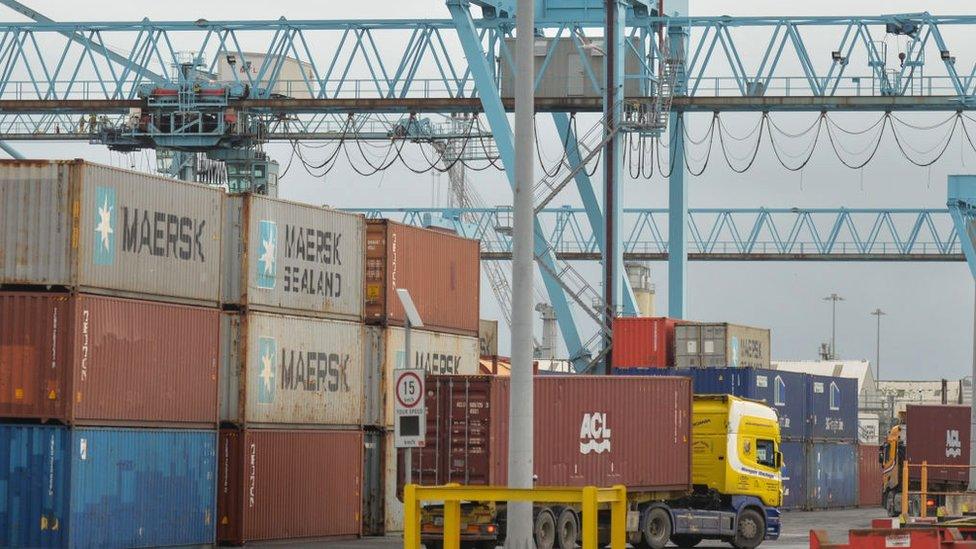
- Published22 March 2023
